
Hypertension: When To Ring The Doctor About Your High Blood Pressure?

Table of Contents
Hypertension is referred to as the ‘silent killer’ because it has no visible symptoms, making it very difficult to monitor it. Neglecting hypertension for a long time can put your health at risk. Blood pressure drops and rises several times during the day, but continuous high pressure can damage blood vessels and lead to several cardiovascular problems. It is not advisable to rely on physical symptoms to know about hypertension. Almost all hypertension symptoms are very general, and we experience them for various reasons in our daily life like headaches, nervousness, dizziness, disturbed sleep, etc. Therefore, it is very important to monitor your health closely and visit a doctor on time if you notice symptoms of high BP.To understand what high blood pressure means, it is important to define it first.
What is blood pressure?
Arteries help circulate blood from the heart to the rest of the body. The blood can push through the arteries because of the rhythmic beating of the heart. As the blood flows, pressure is exerted on the artery walls, referred to as blood pressure. Hypertension or high blood pressure, as mentioned above, occurs when the blood circulating through the arteries exerts more than normal pressure on its walls.
High blood pressure treatment
When you have consistently high blood pressure, there is a good chance that you have hypertension. Hypertension is divided into 2 categories:
1. Primary hypertension
No identifiable cause of blood pressure. It develops gradually with time, mostly due to unhealthy lifestyles like excessive drinking/smoking, lack of exercise, unhealthy eating, stress, etc.
2. Secondary hypertension
This hypertension is caused due to an underlying condition like thyroid, diabetes, congenital disabilities, gland tumors, illegal drug consumption, etc.
Treating primary hypertension at home is possible if you follow simple measures like checking your blood pressure regularly, making some lifestyle changes, losing excess body fat if you are overweight, etc. However, it is difficult to manage secondary hypertension at home; hence, it is advisable to consult a doctor as soon you realize your blood pressure is high and the BP reading is more than 120/80 mmHg.
A primary healthcare provider can diagnose your high blood pressure and prescribe you relevant medications and other advice. However, if you need a more extensive diagnosis and your high BP leads to cardiovascular damage, you might be referred to a cardiologist.
How do you measure hypertension? What do the numbers on a sphygmomanometer mean?
What do blood pressure numbers mean?
Blood pressure is measured and recorded using two numbers. The first number is the systolic blood pressure, whereas the second number is the diastolic blood pressure. The systolic blood pressure number indicates how much blood is exerted against the artery walls during the rhythmic beating. The diastolic blood pressure number indicates how blood is exerted against the arteries when the heart rests between two beats.
What are normal blood pressure numbers?
Normal blood pressure recording is systolic less than 120 and diastolic less than 80, 120/80 mmHg. Anything more than 120 systolic and 80 diastolic is high blood pressure. Even systolic within the range of 120-129 and 80 diastolic is considered elevated blood pressure.
What is high blood pressure?
Blood pressure levels are usually divided into 5 stages: normal, elevated, hypertension stage 1, hypertension stage 2, and hypertension stage 3.
| Blood Pressure Category | Systolic (mmHg) | Diastolic (mmHg) |
|---|---|---|
| Normal | less than 120 | less than 80 |
| Elevated | more than 120 | less than 80 |
| Hypertension Stage 1 | between 130-139 | between 80-89 |
| Hypertension Stage 2 | higher than 140 | higher than 90 |
| Hypertension Stage 3 | higher than 180 | higher than 120 |
What causes high blood pressure?
High blood pressure does not happen suddenly but rather develops over time due to an unhealthy lifestyle. Certain health conditions like diabetes, obesity, thyroid, kidney disorders, etc., can also cause high blood pressure.
What are the symptoms of hypertension?
There are no clear symptoms of hypertension, but you can look out for some signs to monitor your blood pressure levels. These signs are very similar to health problems we face in our routine life; hence, it is important to look at them closely.
- Headaches
- Dizziness and nausea
- Shortness of breath
- Disturbed sleeping
- Nosebleeds
How to prevent or manage high blood pressure?
Slight lifestyle changes can go a long way in managing primary hypertension. Some things you can follow are:
- Eat and drink timely
- Dizziness and nausea
- Avoid smoking/drinking
- Manage stress
- Avoid excessive sodium and sugar in food
- Maintain a healthy weight
Conclusion
As mentioned, hypertension has no clear symptoms due to which it can go unnoticed. To be on the safer side, it is advisable to have regular doctor consultations and physical examinations so that you can manage high blood pressure timely if need be and avoid serious heart conditions.
Note of Caution: This article is for information purposes only. Always consult your doctor in case of any blood pressure or other health-related problems.
Disclaimer
The information contained in this article is to educate, spread awareness in relation to hypertension and other diseases to the public at large. The contents of this article are created and developed by BPinControl.in through its authors, which has necessary, authorisations, license, approvals, permits etc to allow usage of this articles on The Website. The views and opinions expressed in this article are views, opinions of the respective authors and are independently endorsed by doctors. Although great care has been taken in compiling and checking the information in this article, The Website shall not be responsible, or in any way liable for any errors, omissions or inaccuracies in this article whether arising from negligence or otherwise, or for any consequences arising therefrom. The content of this article is not a substitute for any medical advice. The Website shall not be held responsible or liable for any consequence arising out of reliance on the information provided in the article.

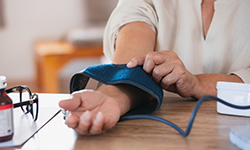
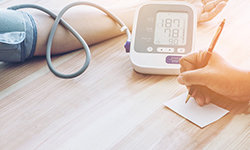
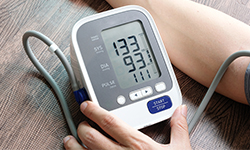
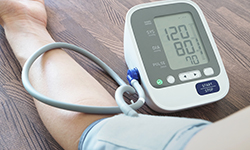
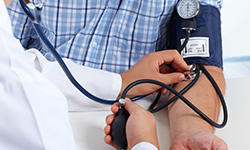




Comments (0)
No comments found.Add your comment